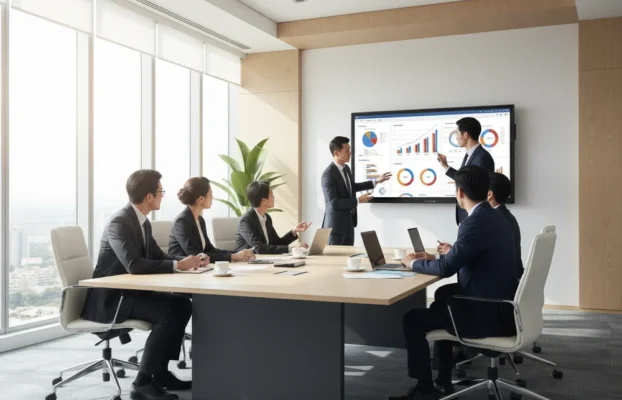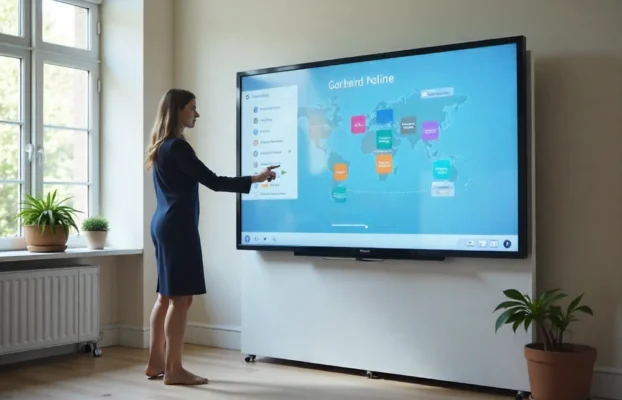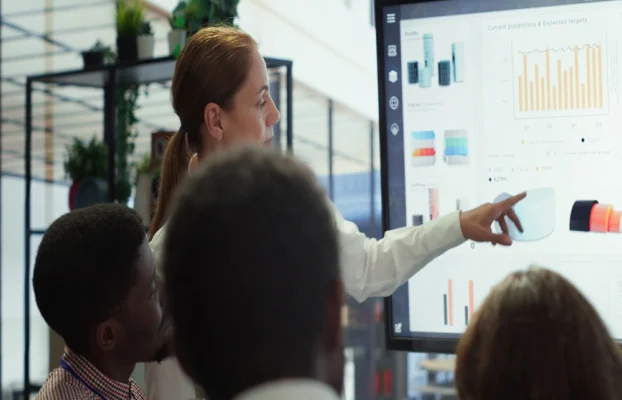Why Your Organization Needs a Meeting Room Booking System
In today’s fast-paced business environment, optimizing office space and resources is essential for maintaining productivity and efficiency. One area that often poses challenges for businesses is managing meeting spaces. Scheduling conflicts, double bookings, and underutilized rooms can lead to frustration and lost time. This is where a meeting room booking system becomes invaluable.
A
meeting room booking system simplifies the process of reserving meeting spaces, ensuring that employees can find and book available rooms easily. In this blog post, we will explore the key benefits of implementing a meeting room
booking system and how it can transform the way your organization manages its resources.
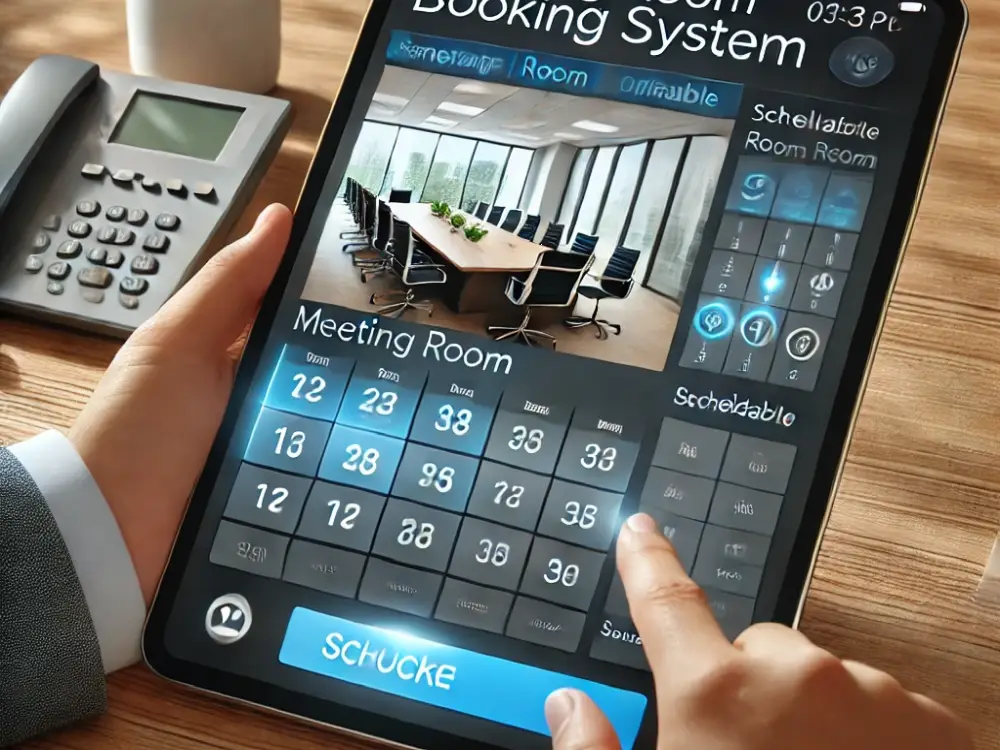
1. Eliminate Scheduling Conflicts
One of the most common issues that organizations face when managing meeting spaces is double bookings or scheduling conflicts. Without a centralized system, it’s easy for employees to accidentally book the same room at the same time. This leads to confusion and wasted time as staff scramble to find alternative spaces.
A meeting room booking system solves this problem by providing a clear, real-time view of available rooms. Employees can see which rooms are booked and when, reducing the chances of overlap. This system ensures that every meeting space is used efficiently, preventing frustrating conflicts and last-minute rescheduling.
2. Improve Office Space Utilization
Meeting rooms are a valuable asset, but without a proper booking system, they can often be underutilized or mismanaged. Some rooms may remain empty for extended periods, while others are overbooked. This uneven distribution can affect your organization’s overall productivity.
A meeting room booking system allows you to track and analyze room usage patterns. You can identify which rooms are being used most frequently and which are often left empty. This data helps you optimize office space and make informed decisions about how to allocate meeting resources more effectively. For instance, you may discover that a particular room is too large for most meetings, allowing you to repurpose it for other uses.
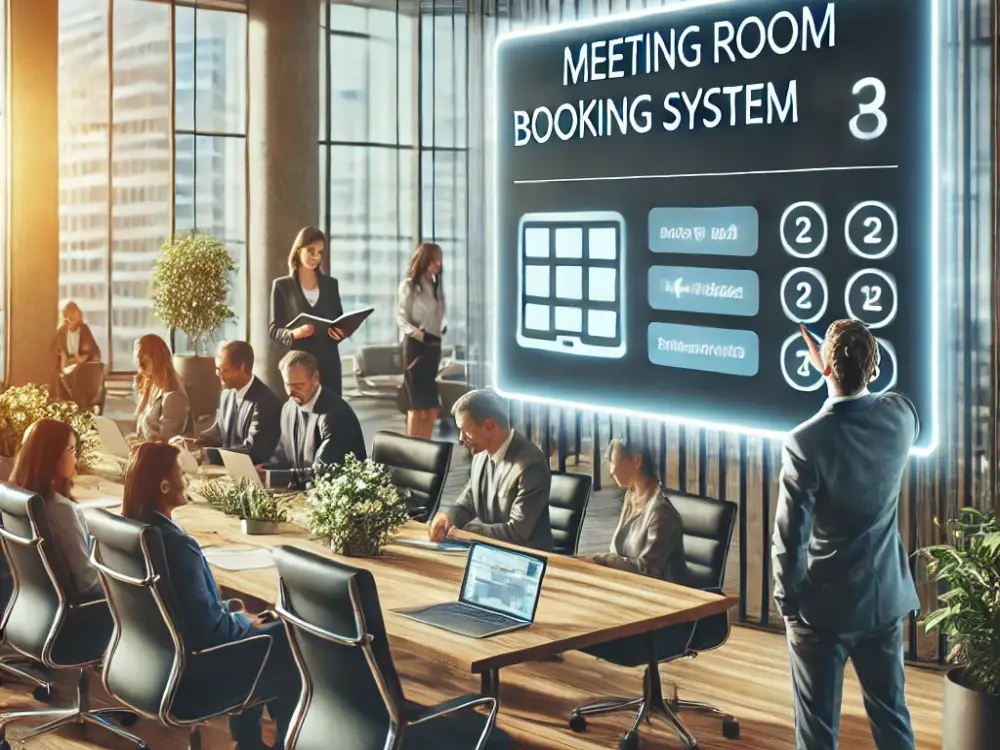
3. Streamline the Booking Process
Manual booking processes, such as using spreadsheets or paper-based systems, are prone to errors and are time-consuming. Employees may need to contact multiple people to confirm a room’s availability, which can lead to delays and frustration.
A digital meeting room booking system simplifies the process by allowing employees to book rooms with just a few clicks. The system provides real-time availability updates, so employees can quickly find and reserve a space without needing to go through layers of communication. This streamlined process saves time and boosts productivity, enabling employees to focus on more important tasks.
4. Support Remote and Hybrid Work Environments
With the rise of remote and hybrid work models, the need for effective meeting space management has become even more critical. Employees may work from different locations or come into the office on different days, making it harder to coordinate meeting spaces.
A meeting room booking system supports remote and hybrid work environments by offering flexible booking options. Employees can book rooms in advance or on the go using an app, ensuring that they always have a space when they need it. This flexibility allows remote workers to plan their office visits more efficiently and ensures that in-office meetings run smoothly, even when team members are working from different locations.

5. Integration with Calendar Systems
Many modern meeting room booking systems integrate seamlessly with popular calendar platforms like Google Calendar, Microsoft Outlook, or Office 365. This integration ensures that employees’ meeting room reservations automatically sync with their calendars, reducing the risk of double bookings or missed appointments.
The integration also makes it easier to coordinate meetings across different teams or departments. Employees can view room availability directly within their calendars, making the booking process even more efficient. The system can send reminders and notifications about upcoming meetings, ensuring that everyone is on the same
page.
Conclusion
A meeting room booking system is more than just a scheduling tool—it’s an essential part of managing office resources and improving productivity. By eliminating scheduling conflicts, optimizing space utilization, and streamlining the booking process, this system can transform the way your organization operates. Additionally, with remote and hybrid work models becoming more common, having an efficient room booking system ensures that meeting spaces are used effectively, no matter where your employees are working from.
According to
TechGuide, using a digital meeting room booking system helps businesses optimize space and increase productivity.
For more details on how a meeting room booking system can benefit your organization, visit
Israk’s Meeting Room Booking System.




